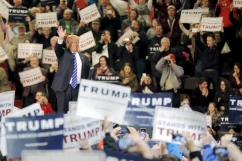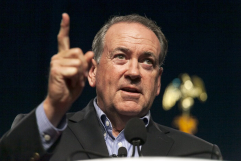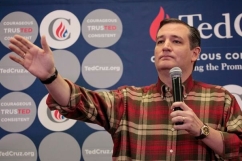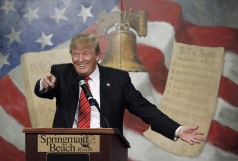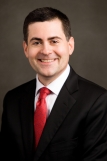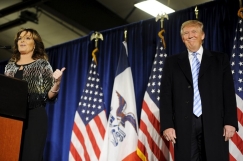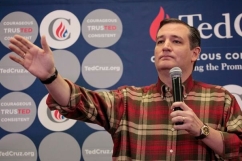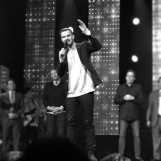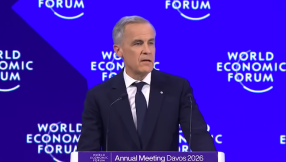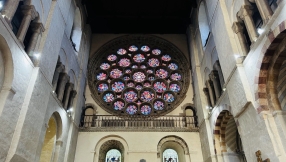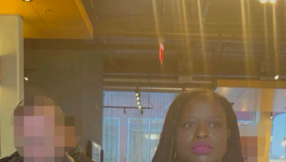Evangelical Christians are once again expected to make their presence felt in the upcoming Republican primaries.
Evangelicals are America's biggest and most powerful religious voting bloc, representing a large slice of the electorate, CNN reported.
In 2012, 57 percent of people who participated in the Iowa presidential caucuses identified themselves as "born again" or evangelical.
But evangelicals are not known to vote as a bloc, especially in the primaries, CNN said, noting that they disagree not only on the candidates but also on more basic principles like how active Christians should be in partisan politics.
"The problem is that many secular people think that all evangelicals are alike, when there are multiple streams and theological and generational divides within evangelicalism," said Russell Moore, a leading Southern Baptist leader.
With the help of experts, CNN listed down seven types of evangelicals:
1. The old guard
This group is composed of elderly evangelicals who believe that the U.S. is and should remain a Christian nation, which means they typically vote for conservative Christian presidential candidates. "They are hawkish on foreign policy and want politicians who won't give ground on issues like same-sex marriage, abortion and religious liberty," CNN said.
This coming election, this group of evangelicals is expected to throw their support to Republican presidential candidate Ted Cruz.
2. Institutional evangelicals
These evangelicals are the leaders of megachurches, charities, seminaries and umbrella groups such as the National Association of Evangelicals. "They tend to back candidates who, while sharing their core values, stand a solid chance of winning the presidency," according to CNN.
This type of evangelicals includes megachurch pastor Rick Warren and Southern Baptist intellectual R. Albert Mohler, who both have joined the presidential campaign of Sen. Marco Rubio, who naturally is expected to get their votes.
3. Entrepreneurial evangelicals
These evangelicals are those who have built television ministries reaching millions of Americans. They include Pentecostal preachers and such personalities as Jerry Falwell Jr., who turned the family-owned Liberty University into the world's biggest Christian university.
Falwell has all but endorsed GOP presidential frontrunner Donald Trump, who is expected to get the votes of these evangelicals.
4. 'Arm's length' evangelicals
These are the evangelicals who are not mentioned in mainstream media but who "dominate some the most dynamic movements within conservative Christianity," CNN said.
Arm's length pastors include Tim Keller of Redeemer Presbyterian Church in New York, and John Piper, a former megachurch pastor in Minnesota. For them, churches and their ministers have no role to play in politics.
In his campaign ads, Rubio explains his faith but doesn't mention political issues—something that might resonate with this group.
5. Millennial evangelicals
These are the young-generation evangelicals who are less likely than their elders to identify as politically conservative or oppose same-sex marriage. Most of them, however, oppose abortion just like their elders.
At this stage, no GOP presidential bet has particularly caught their attention.
6. Liberal evangelicals
The name of this group is not an oxymoron. According to Pew's survey, 13 percent of evangelical Protestants identify as liberal. Many African-American Protestants also hold evangelical beliefs but rarely vote Republican. A few of them have endorsed Trump, but the majority are expected to support the Democratic presidential candidate.
7. Cultural evangelicals
These evangelicals were born and raised Christian but don't go to church. Yet they still call themselves evangelical, much like nonreligious Jews still identify as Jewish.
They are expected to vote for Trump.










